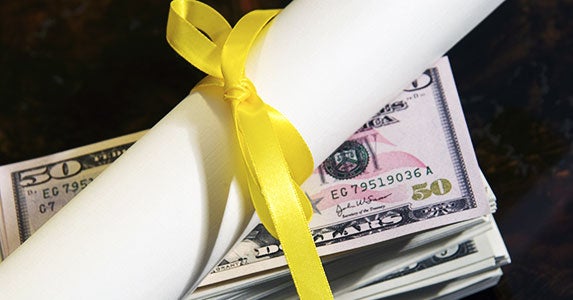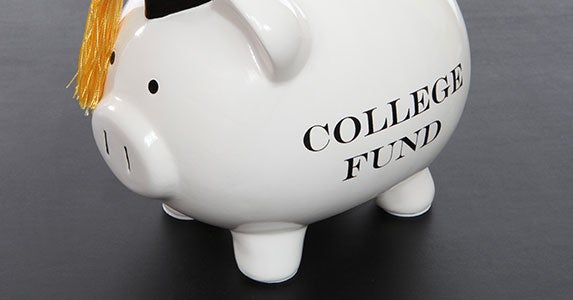Whether you just graduated, are taking a break from school, or have already started repaying your student loans, these tips will help you keep your student loan debt under control. That means avoiding fees and extra interest costs, keeping your payments affordable, and protecting your credit rating. If you're having trouble finding a job or keeping up with your payments, there's important information here for you, too.

1. Know Your Loans: It's important to keep track of the lender, balance, and repayment status for each of your student loans. These details determine your options for loan repayment and forgiveness. If you're not sure, ask your lender or visit www.nslds.ed.gov. You can log in and see the loan amounts, lender(s), and repayment status for all of your federal loans. If some of your loans aren't listed, they're probably private (non-federal) loans. For those, try to find a recent billing statement and/or the original paperwork that you signed. Contact your school if you can't locate any records.
2. Know Your Grace Period: Different loans have different grace periods. A grace period is how long you can wait after leaving school before you have to make your first payment. It's six months for federal Stafford loans, but nine months for federal Perkins loans. For federal PLUS loans, it depends on when they were issued (see details). The grace periods for private student loans vary, so consult your paperwork or contact your lender to find out. Don't miss your first payment!
3. Stay in Touch with Your Lender: Whenever you move or change your phone number or email address, tell your lender right away. If your lender needs to contact you and your information isn't current, it can end up costing you a bundle. Open and read every piece of mail - paper or electronic - that you receive about your student loans. If you're getting unwanted calls from your lender or a collection agency, don't stick your head in the sand - talk to your lender! Lenders are supposed to work with borrowers to resolve problems, and collection agencies have to follow certainrules. Ignoring bills or serious problems can lead to default, which has severe, long-term consequences (see tip 6 for more about default.)
4. Pick the Right Repayment Option: When your federal loans come due, your loan payments will automatically be based on a standard 10-year repayment plan. If the standard payment is going to be hard for you to cover, there are other options, and you can change plans down the line if you want or need to. Extending your repayment period beyond 10 years can lower your monthly payments, but you'll end up paying more interest - often a lot more - over the life of the loan. Some important options for student loan borrowers are income-driven repayment plans such as Income-Based Repayment and Pay As You Earn which cap your monthly payments at a reasonable percentage of your income each year, and forgive any debt remaining after no more than 25 years (depending on the plan) of affordable payments. Forgiveness may be available after just 10 years of these payments for borrowers in the public and nonprofit sectors (see tip 10 below). To find out more about Income-Based Repayment and related programs and how they might work for you, visit IBRinfo.org.
Private loans are not eligible for IBR or the other federal loan payment plans, deferments, forbearances, or forgiveness programs. However, the lender may offer some type of forbearance, typically for a fee, or you may be able to make interest-only payments for some period of time. Read your original private loan paperwork carefully and then talk to the lender about what repayment options you may have.
5. Don't Panic: If you're having trouble making payments because of unemployment, health problems, or other unexpected financial challenges, remember that you have options for managing your federal student loans. There are legitimate ways to temporarily postpone your federal loan payments, such as deferments and forbearance. For example, an unemployment deferment might be the right choice for you if you're having trouble finding work right now. But beware: interest accrues on all types of loans during forbearances, and on some types of loans during deferment, increasing your total debt, so ask your lender about making interest-only payments if you can afford it.
If you expect your income to be lower than you'd hoped for more than a few months, check out Income-Based Repayment. Your required payment in IBR can be as little as $0 when your income is very low. See tip 4 for more about IBR and other repayment options.
6. Stay out of Trouble! Ignoring your student loans has serious consequences that can last a lifetime. Not paying can lead to delinquency and default. For federal loans, default kicks in after nine months of non-payment. When you default, your total loan balance becomes due, your credit score is ruined, the total amount you owe increases dramatically, and the government can garnish your wages and seize your tax refunds if you default on a federal loan. For private loans, default can happen much more quickly and can put anyone who co-signed for your loan at risk as well. Talk to your lender right away if you're in danger of default. You can also find helpful information atstudentloanborrowerassistance.org.
7. Prepay If You Can: If you can afford to pay more than your required monthly payment - every time or now and then - you can lower the amount of interest you have to pay over the life of the loan. To pay down your loan more quickly, make sure to include a written request to your lender specifying that the extra amount be applied to your loan balance, and continue making payments each month. Otherwise, your prepayment may automatically be credited to a future payment and you may not be billed for the next month.
8. Pay Off the Most Expensive Loans First: If you're considering paying off one or more of your loans ahead of schedule, start with the one that has the highest interest rate. If you have private loans in addition to federal loans, start with your private loans, since they almost always have higher interest rates and lack the flexible repayment options and other protections of federal loans.
9. To Consolidate or Not to Consolidate: A consolidation loan combines multiple loans into one for a single monthly payment and one fixed interest rate. If this is appealing, here are some pros and cons to consider. You canconsolidate your federal student loans through the Direct Loan program, and this calculator can help you figure out what your interest rate would be. For private consolidation loans, shop around carefully for a low or fixed interest rate if you can find one, and read all the fine print. Never consolidate federal loans into a private student loan, or you'll lose all the repayment options and borrower benefits - like unemployment deferments and loan forgiveness programs - that come with federal loans!
10. Loan Forgiveness: There are various programs that will forgive all or some of your federal student loans if you work in certain fields or for certain types of employers. Public Service Loan Forgiveness is a federal program that forgives any student debt remaining after 10 years of qualifying payments for people in government, nonprofit, and other public service jobs. Find out more at IBRinfo.org. There are other federal loan forgiveness options available for teachers, nurses, AmeriCorps and PeaceCorps volunteers, and other professions, as well as some state, school, and private programs (see some examples).












